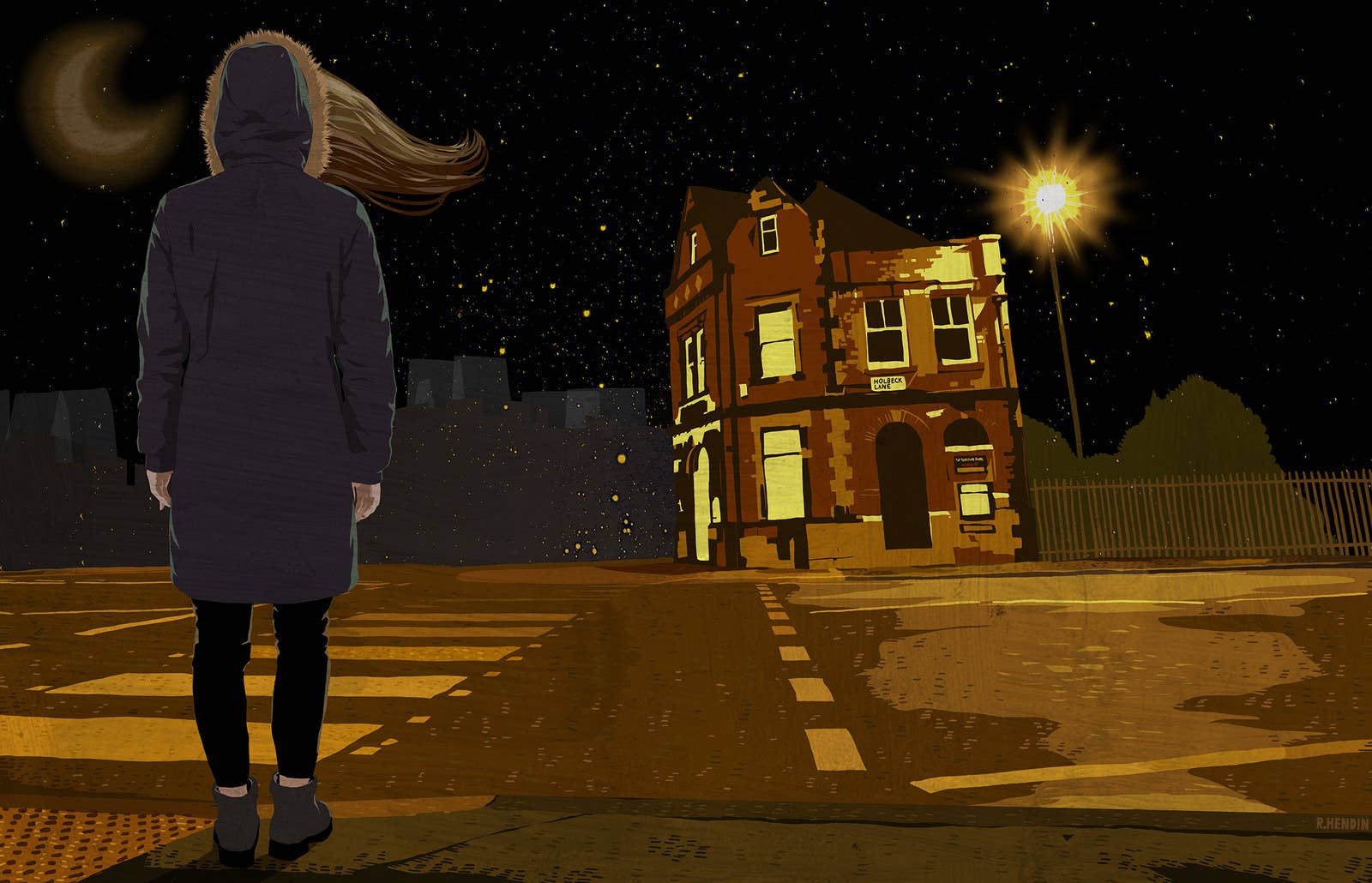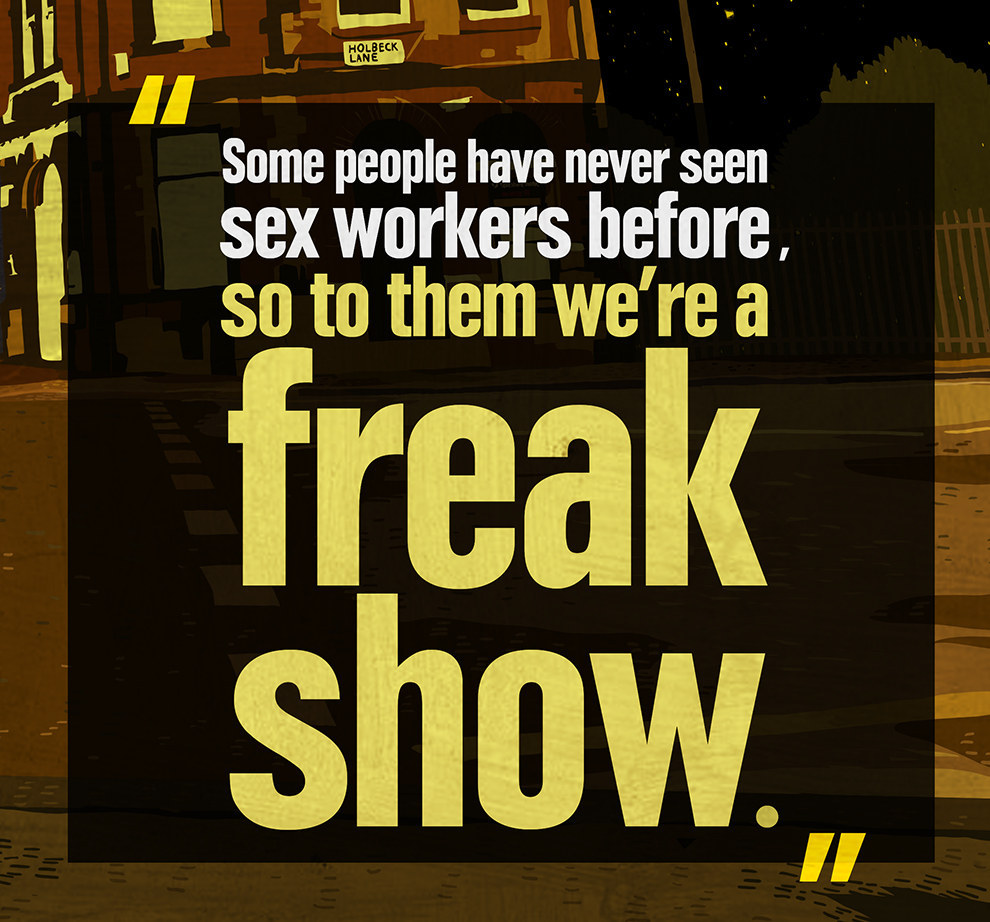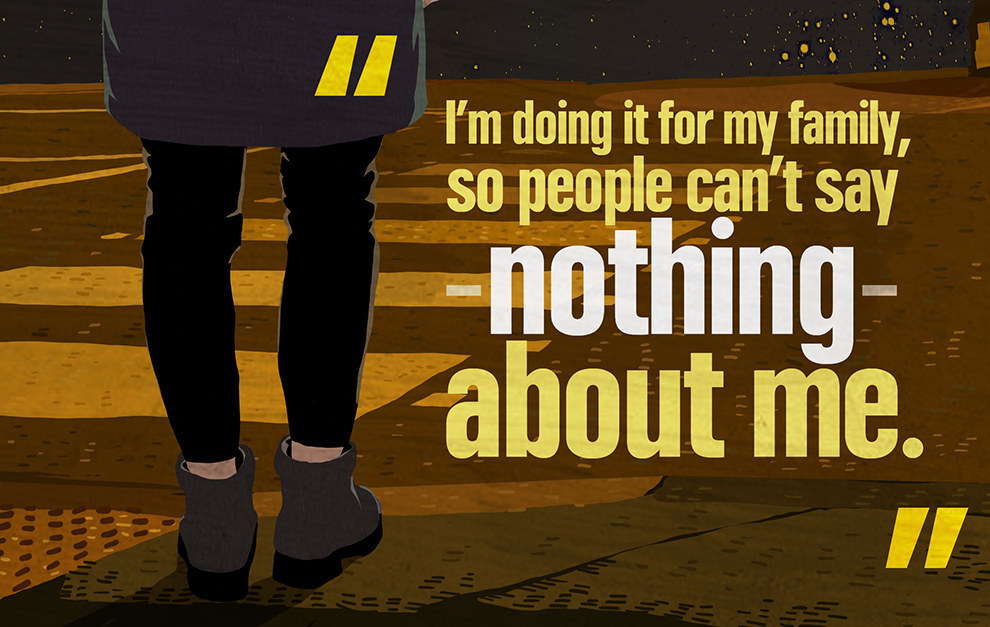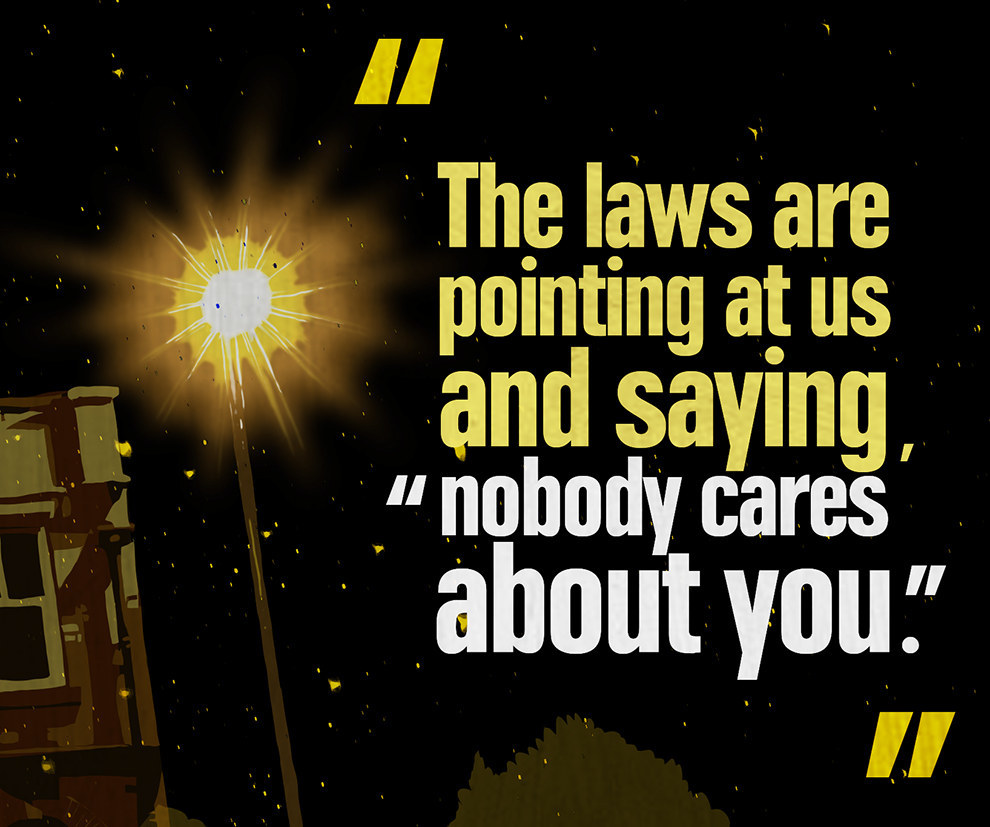
A five-minute drive from the centre of Leeds lies Holbeck, an inner-city area that could be mistaken for any other industrial-led district in the UK: grey offices line the streets, car dealerships and repair shops sit just off a roundabout, and on a quiet February afternoon, only the hum of white vans circulating the busy surrounding roads could be heard. In recent years, a long-awaited regeneration plan has seen much of this desolate area vacated, leaving only clusters of occupied homes on the outskirts. Nearby, a canal acts as a natural divide between Holbeck and a city centre that bustles with students and shops.
Passing through, there were no signs that there was anything noteworthy about this area. Except it was in this quiet part of Leeds that Daria Pionko, a 21-year-old sex worker, was found brutally murdered just two days before Christmas last year. Pionko, a Polish national, had died as a result of head and facial injuries in what police described as a “sustained and vicious attack”. Other sex workers who knew her described her to BuzzFeed News as a “nice girl”, "kind", and a “friend”.
“She didn’t deserve to die,” said one woman as she showed us the corner where Pionko’s body was found.
But what drew further attention to the murder was that Pionko died in an area that police had patrolled every night since 2014, in a managed zone they had made specifically "safe" for sex workers. Between 7pm and 7am, sex workers can work there with "a lower likelihood" of being arrested. A few weeks after Pionko’s murder, police declared the managed zone – the very first of its kind in the UK – would remain a permanent fixture.
The decision to maintain the area as a semi-legal space was a pivotal moment for the sex trade in the UK – where there are an estimated 80,000 on-street sex workers – and there have since been calls for other police forces to consider setting up “managed” areas of their own. On Monday, a report revealed recommended guidelines, sent to police forces across the country, that reflect a shift in the UK’s approach to sex work: recommendations included putting an end to raids on brothels, and appointing an officer to act as a single point of contact for sex workers who are victims of sex crime, in an effort to build trust with police (an arrangement already in place in Holbeck). Sex work remains illegal in the UK, but this month, the home affairs committee will host an inquiry into the way prostitution is treated in legislation, stating that it will assess “whether the balance in the burden of criminality should shift to those who pay for sex rather than those who sell it.”
The managed area has been criticised by some MPs and sex work opponents – Pionko’s murder, they say, was a stark reminder of the dangers women like her often face, so what difference could a “safe zone” create? And should police, who describe street sex work as “an extremely dangerous and fraught occupation”, be enabling a trade that remains illegal in the UK?

As night fell in Holbeck, the managed area was a far cry from the “red light district” described by tabloids in recent weeks. There were no flashing lights or hordes of women wearing few clothes. Several unmarked police cars, and an officer on a bicycle, circulated the streets throughout the night.
"Are you doing a story on the prostitutes around here?” one police officer asked when he stopped our car. “We have a few of us out tonight, but you know, bad things do happen around here. Be careful."
The area designated as “safe" for sex workers can be walked in around 20 minutes, and is a short distance from some residential homes. On the night we visited, a few lone women could be seen to wander up and down one winding street. Driving past, you’d see a woman on her own; a minute later, you’d return and she’d be gone.
The women working that evening were aged between their early twenties and late thirties; some had been working for over 10 years, others for just eight months. Several of the sex workers BuzzFeed News spoke to were British, but some were Romanian, Hungarian, or Czech – and said their nationalities sometimes caused hostility between the women.
As sex workers operate in plain sight, harassment is rife. Street work accounts for the smallest portion of the sex industry (about 20%), but it’s the most visible and its workers the most marginalised. Women in Holbeck told BuzzFeed News they'd escaped vicious attacks. Two of them said they carried knives for protection.
“There are some kids in Leeds who ring their mates up, and 18- and 19-year-olds – who’ve had a car bought by them from Mummy and Daddy – come down," said one woman. "You’ll see rows of six cars with lads and lasses driving around to see these girls. Then they start shouting abuse at us. Some people have come down and thrown eggs and bricks at us."
“They’ve never seen sex workers before,” she added. “So to them, we’re a freak show.”
Basis Yorkshire, a leading charity for sex workers’ rights, said in the first year after the scheme launched as a pilot project in 2014, more than 60% of sex workers said they were willing to report crimes to the police, compared with just 7% before the scheme began.
“There is clear evidence that this will increase the safety of women in the area,” Gemma Sciré, chief executive of Basis Yorkshire, said. “Women already feel more able to report crimes to the police, as evidenced by the significant increase of reporting of violent crimes committed against sex workers.”

While rates of drug and alcohol addiction can be high among street sex workers, other factors – such as poverty or family – can contribute to someone’s decision to sell sex.
Sarah – not her real name – said she’d been doing street sex work “on and off” for 14 years. She first fell into it to fund a drug habit. But after she became pregnant, she "got clean and did the housewife thing”, and later worked 12 hours a day as a supervisor for a cleaning company. When her husband fell ill and could no longer run his gardening business, Sarah became the main source of income for their family, including their three children. Eight months later, she was made redundant.
“My husband knew what I did before; we always said, look, if we need the money, I can go back, I’ll do it," she said. "Kids shouldn’t have to be worrying about where your next meal is coming from, about bills, or if you’ve got clean clothes. My kids don’t need to know any of that. They think I work in a call centre. All they know is Mummy works long hours and Mummy works hard to provide them with the nice clothes and toys they have – that’s all they’ve ever got told.”
One sentiment that was echoed by many of the women in Holbeck was a feeling of pride in being self-sufficient. When discussing their financial stability, two sex workers seemed more defensive at the thought of people presuming they were being supported by the government – “I don’t depend on benefits” – than at the stigma that is so often attached to earning an income with sex work.
“I’m not a prostitute,” Sarah stressed. “I’m not a smackhead. I’m not dirty. I’m not a tramp. I’m not a thief. I’m a working girl, I’m a working lady, or a ‘lady of the night’ as my friend jokes to me. I’m here, and I’m doing it to keep my family going.”
A number of the women Sarah works alongside hold degrees or are currently at university, she said. According to a study last March, a third of sex workers – not specifically street sex workers – hold university degrees, more than 70% of sex workers in the UK have previously worked in healthcare, education, or charities.
“They think we’re dropouts and thick,” Sarah added. “But a girl down here will talk to you about science and baffle your head, or another girl doing criminology. And people think it’s 90% drug users of crack or heroin and 10% clean, but it’s the opposite. It's the other way around with everyone I know. A lot of the girls here are doing this to support their lifestyle.”
Beyond the obvious risks street sex workers face, and the prevalent violence – both physical and mental – they are often targeted with, danger can sometimes lie closer to home. Incite, a women's rights charity, said sex workers who are survivors of domestic violence are seen by authorities and the public to "somehow bring it on themselves through their 'sexually deviant' conduct," and that often the survivor of abuse is criminalised while the perpetuator is not.
As midnight approached in the Holbeck zone, Laura – not her real name – a 28-year-old sex worker, asked if we could drive her home. She was the second mother BuzzFeed News spoke to, and had four children. She said she’d been doing street sex work for five years. On the drive, she spoke about her partner, who was at home waiting for her to return.
"He hasn’t hit me for a while,” Laura said. “But you know, my partner knows now that this is it, and that if he hits me again that’s it, he’s gone, and he won’t see his kids."
Laura said her partner once kicked her in the stomach when she was pregnant, and she went into slow labour. She said she later tried to go to a women's refuge, but was told she wasn't allowed to take her children.
"Then I think about it, and I know I can’t really go anywhere else. I’m doing my work, and I’m doing it for my family, so people can’t say nothing about me.”

The shift in West Yorkshire police’s approach has been a welcome change for activists and charities in Leeds that have been pushing for the safety of sex workers to be at the forefront of their agenda for years. While the scheme has also been mostly well-received among the sex workers, locals are far from impressed that the managed area is on their doorstep. The majority of complaints relate to used condoms and litter being found in the street, but some businesses feared for the safety of their employees. One resident said he'd never seen sex workers before, but to him it looked “like Grand Theft Auto”.
Some of the sex workers BuzzFeed News spoke to said they were concerned the scheme may be focused less on their protection, and more on keeping track of clients and criminals instead. Two women said the police were often “aggressive” towards them, and another described an incident in the managed zone in which she claims two officers ordered her and a male client to leave his car, and after taking down his details, threatened to arrest him as it was a company car, and then threatened to phone his wife too.
Alex Feis-Bryce, the chief executive officer for Ugly Mugs, a charity working in close partnership with the scheme, understands the scepticism, but said the police "are solely concerned about the women's safety". Following years of calling for the decriminalisation of sex work involving consenting adults, he said the charity is pleased police has at least stopped spending resources on methods that were “creating more harm than good”.
“The reality is, it takes time for a huge policy change like this, a radical change, to fall into place,” Feis-Bryce said. “Trust will take some time, it will not be immediate, and after years of sex workers being targeted or harassed, police are now building that trust. This is a big change for police, and a pocket of the best practice is going on in Leeds with this scheme.”
Leeds City Council admits the managed area isn’t a universal cure.
“I accept that there are people who will always have a moral objection to the issue of prostitution,” said councillor Mark Dobson, Leeds City Council’s executive member for the Safer Leeds anti-crime initiative. “I’m of the opinion that it is an industry that’s as old as time and it isn’t going to stop, and as a city that is responsible and cares about the people who live here – including the women who work in this industry – we have had to take a pragmatic approach to keep them safe.”
After years of unsuccessful attempts to curb street sex work, Yorkshire police hope their new approach will help protect the women who are some of the most vulnerable and at risk of violence. With a parliamentary inquiry into prostitution soon to take place, and the new measures being considered by forces, it seems that the rest of the UK’s police may follow their lead.
In Holbeck, the women remained hopeful. But Daria Pionko was still at the forefront of many of their minds, and they referred to her death frequently in conversation. Will new measures and inquiries be enough to protect them from the dangers faced by Pionko, who was working in a "safe" zone, but was still found lifeless just a 30-second walk around the corner from where they stood that evening?
"The laws are pointing at us and saying, ‘Nobody cares about you,” Sarah said. “People sometimes ask, ‘How can police make you feel safer when you’re with a guy?’ And the honest answer to that is: They can’t. Once we get in somebody’s car, that’s it, the police can’t do anything.”

